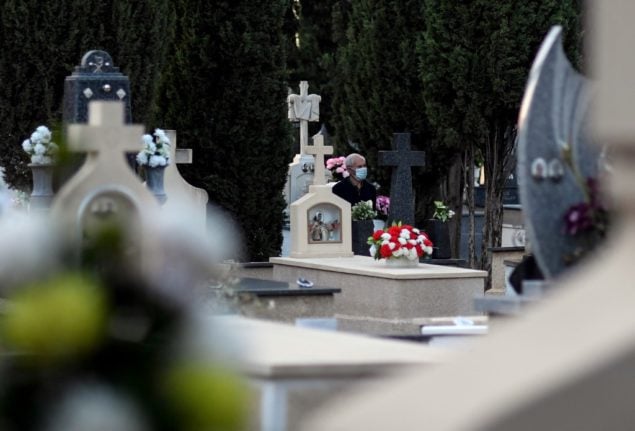More than 45,000 people died of Covid-19 in Spain between March and May, the National Statistics Institute (INE) said Thursday, giving a figure that exceeds the official toll by 18,000.
According to the INE, a total of 45,684 people died within that period, of which 32,652 were certified as having the virus, while another 13,032 died “of suspected (Covid), showing symptoms compatible with the illness”.
Figures released by the health ministry on June 1st put the total number of deaths from Covid-19 at 27,127 but the INE figure suggests a further 18,557 people died between March and May.
Adding the INE figures to the official number of deaths would push the total number of people who have died of the virus in Spain's outbreak to more than 65,500.
The INE figure reinforces the widespread suspicion that during the first wave of the pandemic, when hospitals and funeral homes were completely overwhelmed, many cases were not counted as part of the official coronavirus death toll.
Pablo Casado, leader of the conservative opposition People’s Party, accused the left-wing coalition government of hiding the real figures.
“Spain does not deserve a government that lies and hides Covid deaths. The INE confirms what we already knew and have been denouncing,” he tweeted.
España no merece un Gobierno que mienta y oculte los muertos por Covid.
El INE confirma lo que ya sabíamos y venimos denunciando: en España murieron hasta mayo 45.684 personas, casi 19.000 más que la cifra oficial.
Las familias merecen respeto y verdad.https://t.co/D6ouIlajme pic.twitter.com/LjszZfwpe3— Pablo Casado Blanco (@pablocasado_) December 10, 2020
“What difference would it make to give a figure that is a bit higher or lower when we're talking about 28,000 victims? Does it change anything?” wondered Fernando Simon, the health ministry's head of emergencies in an interview with El Pais newspaper in early July, referring to the death toll.
Spain was particularly badly hit at the start of the pandemic and its death toll now stands at 47,019, the fourth-highest in Europe, according to an AFP count based on official figures.
Although the United Kingdom currently has the highest figure with more than 62,000 deaths, the new INE figures would push Spain into the lead.
In terms of cases, the virus has so far infected more than 1.7 million people in Spain, placing it fourth within Europe after France, Italy and the United Kingdom.
Last week, Amnesty International released a report on retirement homes in which it said close to half of the Covid deaths in Spain were believed to be elderly people who died in homes.
It said an upcoming Spanish government report was expected to put the figure at between 47 and 50 percent of the overall death toll.
The number of Covid deaths has also provoked political infighting in Spain, with the leftwing coalition government repeatedly attacked by its right-wing and far-right opponents for playing down the death toll.
READ MORE:



 Please whitelist us to continue reading.
Please whitelist us to continue reading.
Member comments